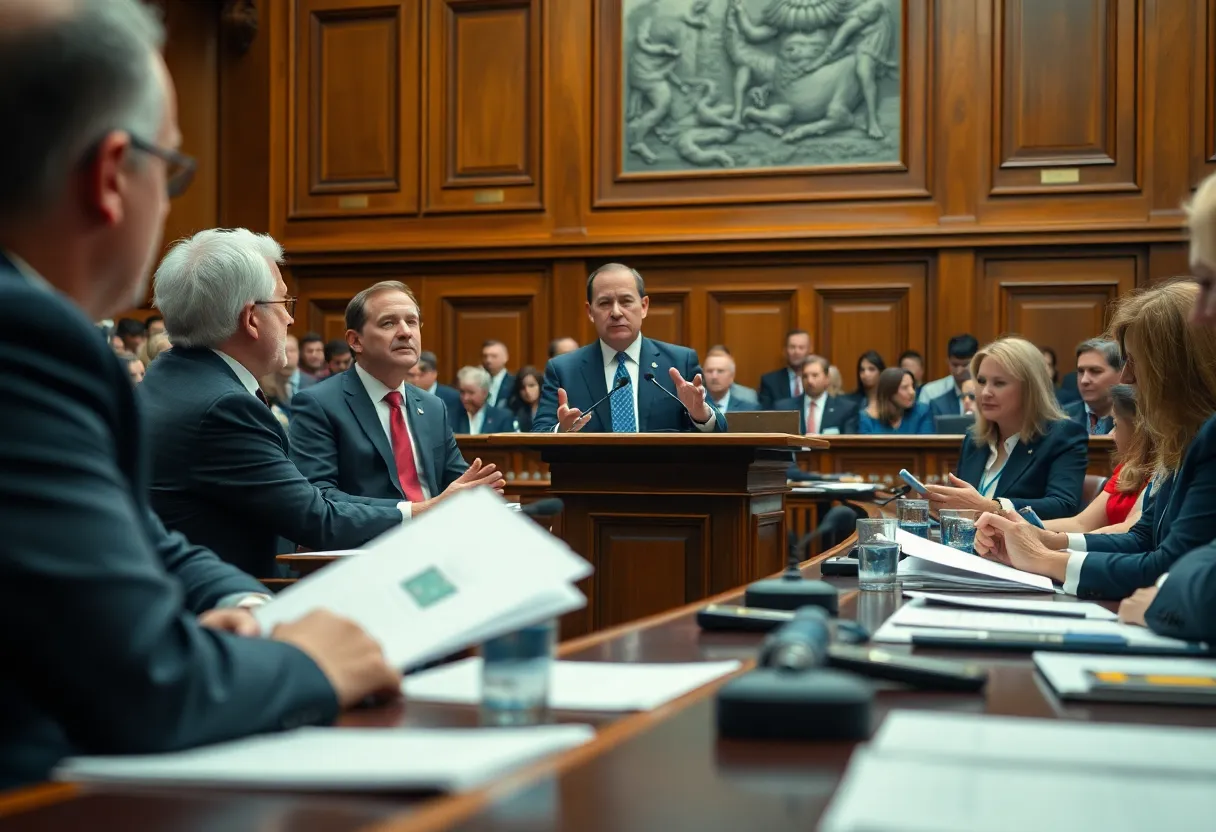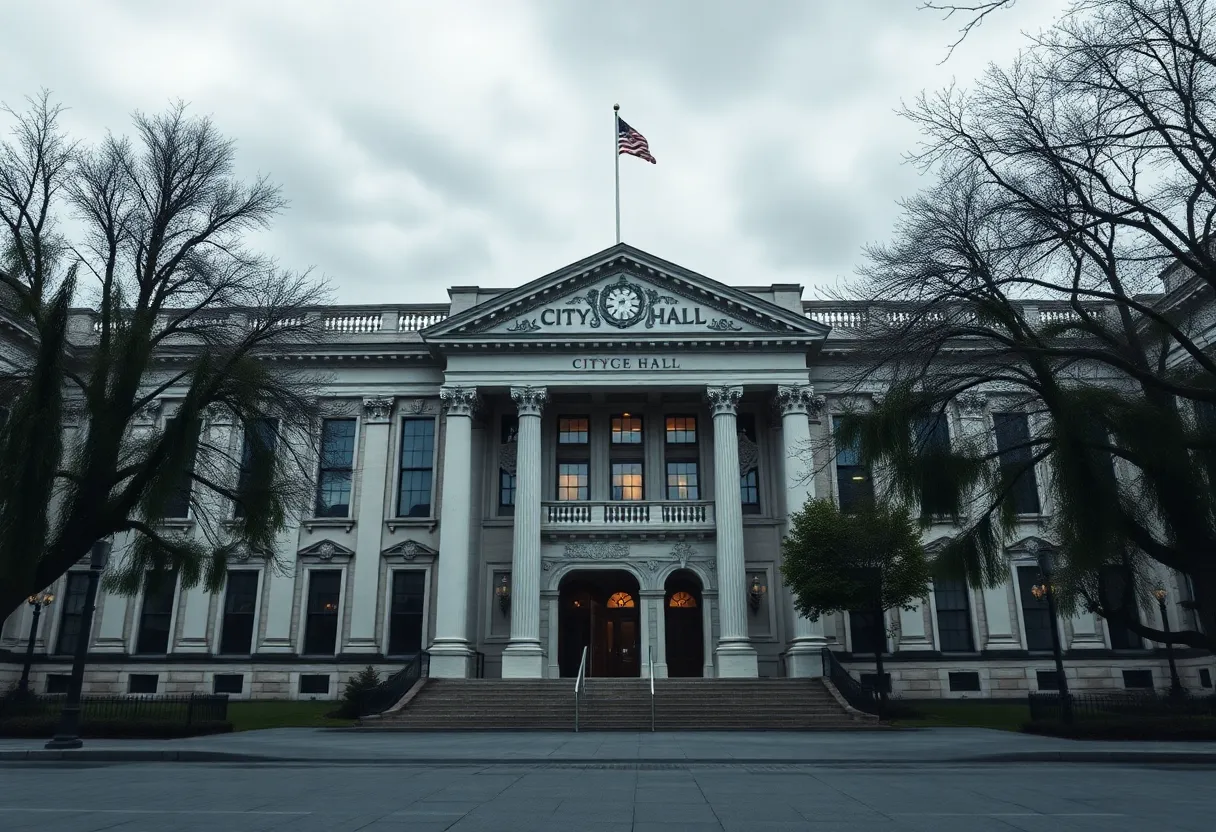News Summary
On May 1, 2025, the House of Representatives voted 246-164 to block California’s plans to ban new sales of gas-powered vehicles by 2035. The resolution, supported by both Republicans and democrats, aims to rescind an EPA waiver that endorsed California’s vehicle ban. Supporters argue the decision favors consumer choice, while critics maintain it undermines environmental progress. Legislative tensions continue as California may pursue legal challenges against this resolution.
California – On May 1, 2025, the House of Representatives voted 246-164 to block California’s ambitious plans to prohibit new sales of gas-powered vehicles by 2035. The resolution, dubbed House Joint Resolution 88, aims to rescind a waiver previously granted by the Environmental Protection Agency (EPA) that endorsed California’s vehicle ban during the Biden administration.
This decisive vote saw backing from 211 Republican representatives and 35 Democrats, showcasing a significant bipartisan dissent against the proposed ban. The measure’s supporters argued that one state’s environmental regulations should not dictate the choices available to consumers nationwide. Proponents within the House highlighted the vote as a triumph for consumer choice and common sense, and criticized California’s approach to environmental policy.
Among the prominent supporters of the resolution, Rep. Kevin Kiley (R-Rocklin), who co-sponsored the measure, described the House’s decision as a “major victory for common sense” and a notable embarrassment for California Governor Gavin Newsom. Notably, Kiley had previously attempted to unseat Newsom during a 2021 recall election. Rep. Doug LaMalfa (R-Oroville), another co-sponsor, emphasized that the House was making it clear that a single state’s policy should not set the agenda for the entire country.
The House action did not stop at the vehicle ban; it also passed two additional measures aimed at withdrawing exemptions for California’s initiatives to promote sales of zero-emission trucks and to impose stricter nitrogen oxide emission standards for engines. These measures passed with respective votes of 231-191 and 225-196.
In 2020, Governor Gavin Newsom had signed an executive order to halt the sale of new gasoline-powered vehicles by 2035, instructing the California Air Resources Board to devise the necessary regulations. While this order prohibited new gasoline-powered vehicle sales, it did not restrict the ownership or sales of used gasoline-powered vehicles.
Following the House vote, Newsom’s office criticized the action, suggesting it utilized the Congressional Review Act (CRA) improperly and contradicted findings from the Government Accountability Office and Senate Parliamentarian regarding the CRA’s legal applicability. Newsom highlighted the historic support his Clean Air Act authority received from both Republican figures like Ronald Reagan and Richard Nixon as foundational to California’s environmental leadership.
Senator Alex Padilla (D-California) echoed these concerns, stating the House’s decision undermined California’s leadership in climate action and economic strength. California’s vehicle ban has already garnered support from eleven other states, which share plans to implement similar measures by 2035, representing a combined 40% of the national auto market. Environmental advocates endorse the ban, citing its potential to substantially decrease emissions and improve air quality. Conversely, critics, including various Republican lawmakers and business groups, argue that such restrictions limit consumer vehicle options.
Rep. John Joyce (R-Pennsylvania) introduced the resolution to revoke the EPA waiver, underlining Congress’s authority to regulate the interstate automotive market. Yet, the Senate Parliamentarian ruled that the waiver was not classified as a regulation subject to the CRA, a decision supported by the Government Accountability Office.
The legislative landscape remains complex, with Rep. Paul Tonko (D-New York) expressing concerns that passing the resolution could set a troubling precedent for future legislative maneuvers related to environmental regulations. Furthermore, although Senator Shelley Moore Capito (R-West Virginia) sponsored a complementary resolution in the Senate targeting the waiver, there has been no commitment to a vote following the parliamentarian’s ruling.
In light of these developments, a spokesperson for the California Attorney General indicated that legal challenges against the House’s resolution could emerge, signaling potential conflicts to come. California had received three waivers from the EPA under the Biden administration to enforce its vehicle emissions standards, underscoring the ongoing debate over environmental policy and consumer rights.
Deeper Dive: News & Info About This Topic
- The Washington Post: California Cars Waiver House Vote
- Wikipedia: Environmental Policy of the United States
- Fox News: Democrats Block Biden Rule on Gas Car Ban
- Google Search: California Gas Car Ban 2025
- The New York Times: California Gas Cars Waiver House Vote
- Encyclopedia Britannica: California
- Fox Business: Congress Takes on California’s Gas Car Ban
- Google News: California Gas Powered Vehicle Ban
- The Hill: House Vote on California EV Mandate
- Google Scholar: California Gas Car Ban Legislation

Author: Anaheim Staff Writer
The Anaheim Staff Writer represents the experienced team at HEREAnaheim.com, your go-to source for actionable local news and information in Anaheim, Orange County, and beyond. Specializing in "news you can use," we cover essential topics like product reviews for personal and business needs, local business directories, politics, real estate trends, neighborhood insights, and state news affecting the area—with deep expertise drawn from years of dedicated reporting and strong community input, including local press releases and business updates. We deliver top reporting on high-value events such as major conventions at the Anaheim Convention Center, including NAMM and VidCon, exciting games at Angel Stadium and Honda Center, and developments at Disneyland Resort Our coverage extends to key organizations like the Anaheim Chamber of Commerce and Visit Anaheim, plus leading businesses in hospitality, entertainment, and innovation that power the local economy As part of the broader HERE network, including HERECostaMesa.com, HEREHuntingtonBeach.com, HERESantaAna.com, and HERELosAngeles.com, we provide comprehensive, credible insights into Southern California's dynamic landscape.




